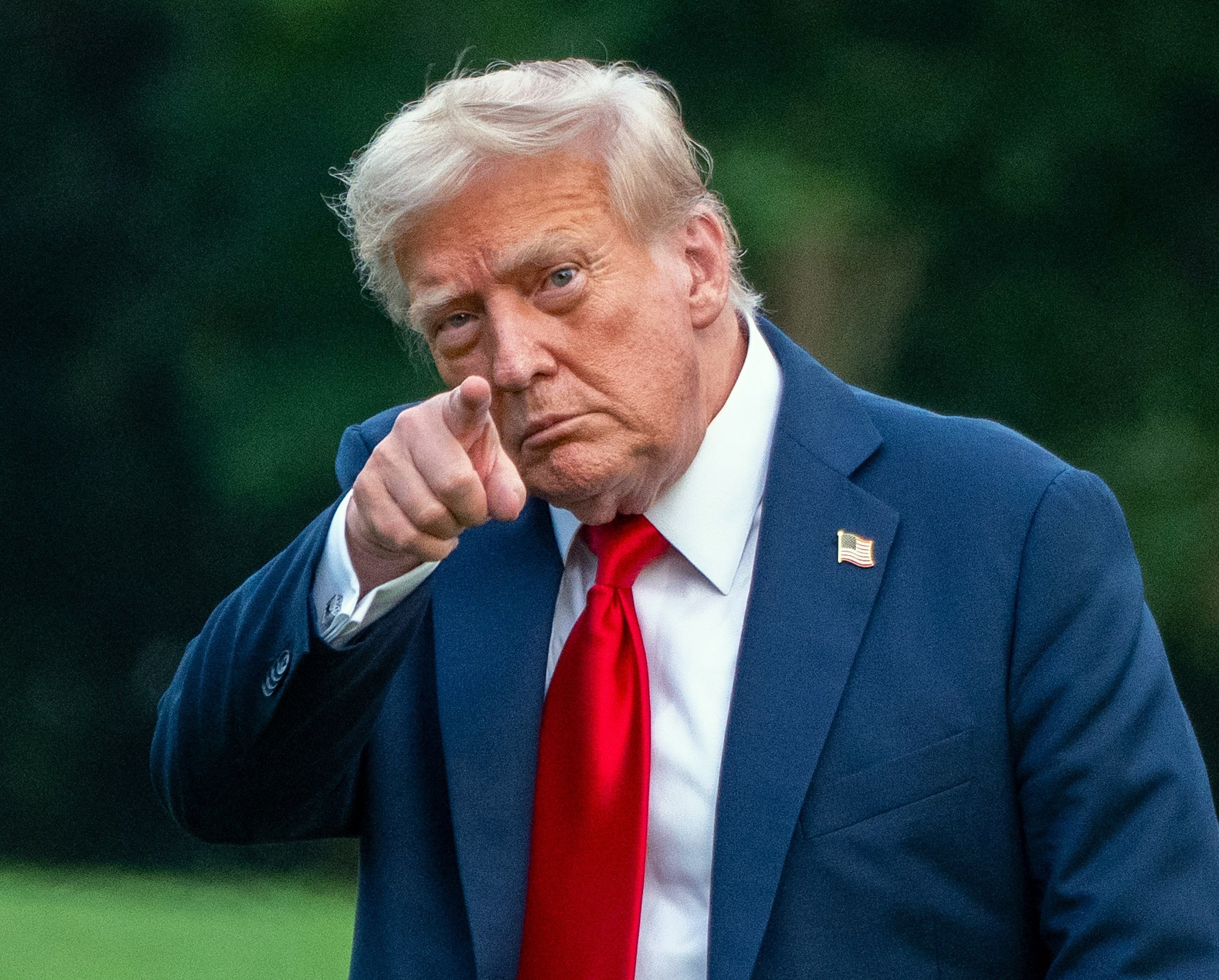Trump claims Indonesia trade deal; Bessent calls China deal timeline ‘flexible’
Indonesia deal announcement follows 32 per cent tariff threat, while US Treasury chief says he is ‘working’ on meeting China counterpart.

US President Donald Trump said on Tuesday that his administration had reached a trade deal with Indonesia, while his Treasury Department chief cut China some slack on the deadline for a final deal of its own.
Speaking to reporters at the White House on Tuesday, Trump said that Indonesia would charge no tariffs on US imports, while exports from the southeast Asian country to America would be subject to a 19 per cent levy.
“They are going to pay 19 per cent and we are going to pay nothing … we will have full access into Indonesia, and we have a couple of those deals that are going to be announced,” Trump said.
On his Truth Social account, Trump called the deal a “landmark”, saying that it “opens up Indonesia’s ENTIRE MARKET to the United States for the first time in History”.
“As part of the Agreement, Indonesia has committed to purchasing $15 Billion Dollars in U.S. Energy, $4.5 Billion Dollars in American Agricultural Products, and 50 Boeing Jets, many of them 777’s,” Trump wrote in his post.
“For the first time ever, our Ranchers, Farmers, and Fishermen will have Complete and Total Access to the Indonesian Market of over 280 million people.”
“If there is any Transshipment from a higher Tariff Country, then that Tariff will be added on to the Tariff that Indonesia is paying,” Trump added, as he thanked Indonesia for the friendship and commitment to balancing the trade deficit.
A deal between the US and Southeast Asia’s most populous country would suggest significant progress in the span of a few days. Last week, Trump sent a letter to Indonesian President Prabowo Subianto, threatening to hit imports from the country with a 32 per cent tariff rate, effective on August 1.
Details on the deal’s scope and implementation timeline were not disclosed.
A trade deal with Indonesia would also have implications for growing competition between Beijing and Washington for influence in the region, particularly since China is Indonesia’s largest trading partner.
Discussing US trade talks with China in a Bloomberg interview later on Tuesday, Treasury Secretary Scott Bessent said that an approaching deadline should not concern investors.
“I tell market participants not to worry about August 12,” Bessent said, referring to the end of a 90-day tariff ceasefire between the two economic superpowers that was announced on May 12, following his talks with Chinese Vice-Premier He Lifeng.
Unhandled type: inline-plus-widget {“type”:”inline-plus-widget”}
Talkhe said, were in a “very good place” ahead of a new meeting that is expected in the coming weeks.
Bilateral trade between the US and Indonesia stood at US$38.2 billion in 2024, with the US recording a deficit of US$17.9 billion that year, according to US data. That gap was US$9.71 billion in the first five months of 2025.
Trump’s deal with Jakarta would be the fourth such agreement for the US leader since he announced so-called “reciprocal” tariffs against most major trading partners in April, following those that he struck with Britain and Vietnam, as well as a framework deal with China.
Bessent said in his interview with Bloomberg that he hoped to meet He again soon, possibly in a third country, either before or after the Chinese leadership gathers for an annual informal policy meeting early next month.
“We’re still working on” a meeting with He, Bessent said. “The Chinese leadership has a big conclave at the beginning of August. We’re trying to work out whether that could be in a third country either before or after that conclave.”
Senior Trump administration officials have also expressed optimism that other Asean countries will have time to negotiate with the US. Secretary of State Marco Rubio assured Malaysian Prime Minister Anwar Ibrahim last week that Kuala Lumpur would have “about a month” to negotiate a better tariff deal with the US.
Earlier, Trump had also threatened members of the developing nations’ Brics group with an extra 10 per cent tariff should they seek to align their “anti-American” policies, as Brics leaders met in Rio de Janeiro, Brazil. Brics members include Indonesia as well as China and India.
Senior Indonesian officials had engaged the US in efforts to avert the tariffs. After attending the Brics summit in Brazil, Indonesian Coordinating Minister for Economic Affairs Airlangga Hartarto met with American officials in Washington.
Other than Indonesia’s proposals to increase imports from the US, discussions also spanned non-tariff issues, including collaboration in critical minerals such as nickel, and cobalt, according to Indonesian government readouts and media reports in the country.
Indonesia’s embassy in Washington did not immediately respond to a request for comment.
To address perceived trade imbalances, Trump has thus far sent a series of letters to about 20 trading partners, including traditional allies Canada and Japan, unilaterally declaring tariff rates of between 20 and 50 per cent, while also giving them time to negotiate these levels down before they go into effect next month.